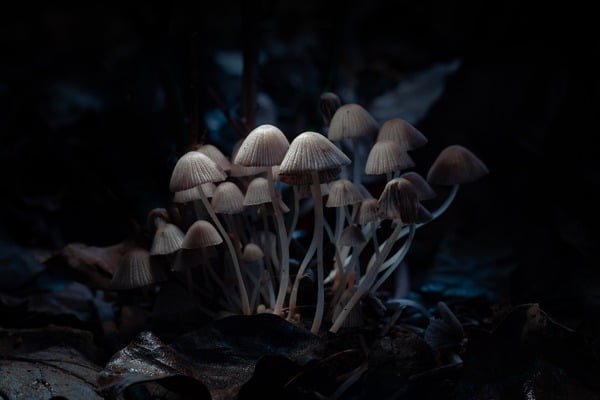
1. What Is Mushroom Hunting?
Mushroom hunting, also known as mushroom foraging or mushrooming, is the practice of searching for wild mushrooms in their natural habitats. It involves exploring various landscapes, such as forests, meadows, and woodlands, in search of edible and interesting mushrooms. Mushroom hunters enjoy the thrill of discovering different mushroom species and often use their findings for culinary purposes or scientific study.
2. Benefits of Mushroom Hunting
Mushroom hunting offers numerous benefits beyond the excitement of the search itself. Here are some advantages of engaging in this outdoor activity:
- Connecting with Nature: Mushroom hunting allows you to immerse yourself in natural environments, fostering a deeper appreciation for the natural world.
- Exercise and Physical Activity: It provides an opportunity for gentle exercise, as you navigate through different terrains and engage in walking or hiking.
- Culinary Delights: Edible mushrooms found during your hunts can be used to create delicious meals, adding unique flavors and textures to your dishes.
- Scientific Exploration: Mushroom hunting can be a gateway to learning about mycology (the study of fungi) and the role mushrooms play in ecosystems.
3. Preparing for a Mushroom Hunt
Before embarking on a mushroom hunting adventure, proper preparation is essential. Consider the following steps to ensure a safe and enjoyable experience:
– Researching Mushroom Species
Familiarize yourself with the types of mushrooms found in your region. Study their characteristics, preferred habitats, and growth patterns. Learn about both edible and poisonous species, as this knowledge will be crucial during your hunts.
– Choosing the Right Gear
Equip yourself with the necessary gear for mushroom hunting. This includes a comfortable pair of hiking boots, a basket or bag for collecting mushrooms, a knife or scissors for harvesting, and a field guide or smartphone app for mushroom identification.
– Understanding Local Laws and Regulations
Research and adhere to any local laws or regulations related to mushroom hunting. Some areas may have restrictions on harvesting certain mushroom species or require permits. Respect these regulations to protect the environment and ensure sustainable mushroom hunting practices.
4. Identifying Edible Mushrooms
– Characteristics of Edible Mushrooms
Edible mushrooms often share specific characteristics, including:
- Fleshy caps and firm stems
- Gills or pores underneath the cap
- Absence of bright colors, especially red or orange
- Mild or pleasant odor
- Known edible species with distinctive features
– Common Edible Mushroom Species
There are several widely recognized edible mushroom species that mushroom hunters commonly seek, such as:
- Morel mushrooms (Morchella spp.)
- Chanterelle mushrooms (Cantharellus spp.)
- Porcini mushrooms (Boletus edulis)
- Chicken of the Woods mushrooms (Laetiporus spp.)
- Oyster mushrooms (Pleurotus spp.)
5. Recognizing Poisonous Mushrooms
While identifying edible mushrooms is crucial, it’s equally important to recognize and avoid poisonous species. Familiarize yourself with the following tips to identify poisonous mushrooms:
– Common Poisonous Mushroom Species
Several poisonous mushroom species have distinct characteristics, including:
- Brightly colored caps or stems
- Foul or pungent odor
- Mushrooms growing in clusters or rings
- Sudden color changes or bruising
- Known poisonous species with distinctive features
– Identifying Warning Signs
In addition to specific characteristics, be aware of warning signs that indicate a mushroom may be toxic:
- Lack of information or uncertainty about the mushroom’s identity
- Rapid onset of symptoms after consumption
- Symptoms such as nausea, vomiting, abdominal pain, or dizziness
- Extreme caution is necessary when uncertain about a mushroom’s edibility.
By recognizing poisonous mushrooms and their warning signs, you can prioritize safety during your mushroom hunting adventures.
FAQs
Is mushroom hunting legal?
Mushroom hunting is legal in many areas, but specific regulations and restrictions may apply. Research local laws and regulations before heading out to ensure compliance.
What should I do if I consume a poisonous mushroom?
If you suspect mushroom poisoning, seek medical attention immediately. Do not induce vomiting unless instructed by medical professionals.
Can I store mushrooms for a long time?
While mushrooms are best consumed fresh, you can store them by drying, freezing, or canning methods to preserve their flavor and texture.
What ethical considerations should I keep in mind while mushroom hunting?
It is important to protect the environment by not overharvesting mushrooms, respecting private property, and leaving some mushrooms behind to allow for spore dispersal.